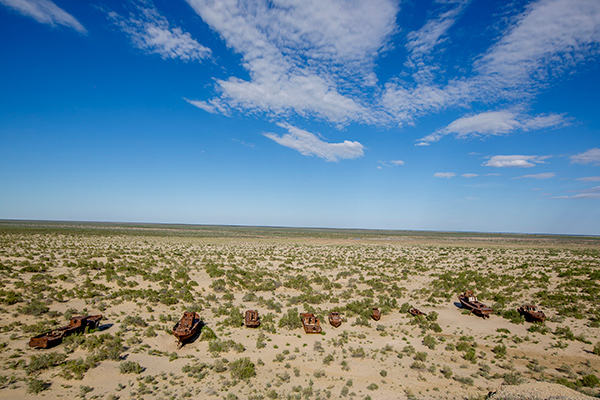
Temperatures in Uzbekistan Rising Nearly Three Times Faster Than Global Average, Increasing Drought Risk
Temperatures in Uzbekistan Rising Nearly Three Times Faster Than Global Average, Increasing Drought Risk
Tashkent, Uzbekistan (UzDaily.com) — Uzbekistan is facing accelerated climate change, with average annual temperatures rising 1.6°C over the past six decades, nearly three times the global average of 0.6°C. The Environmental Change Atlas, prepared by the United Nations Environment Programme (UNEP) using satellite data, highlights the steepest increases—between 1.8°C and 2.5°C—around the Aral Sea region.
The report notes that lowland areas of Uzbekistan receive very little rainfall, and nearly the entire country experiences water stress. Uzbekistan ranks among the twenty most arid countries in the world. UNEP warns that climate change could further exacerbate water shortages: glacial melt by 2050 is expected to significantly reduce inflows to reservoirs, while river runoff in particularly hot and dry years could decline by 25–50%, worsening irrigation challenges. Policy measures that strengthen local water management and cross-border cooperation have shown some effectiveness in addressing these issues.
Arnold Kreilhuber, director of UNEP’s European office, said Uzbekistan faces severe water stress, land degradation, and temperature increases exceeding global averages. He noted that the atlas provides critical data to support the country’s resilience, adaptation, and climate mitigation strategies.
Aziz Abdukahimov, presidential adviser on environmental issues and chairman of the National Committee on Ecology and Climate Change, emphasized the atlas as a tool that consolidates scientifically grounded information on land and water resources, biodiversity, and climate change. He said it aids in developing national environmental strategies and enhances transparency of ecological information for the public.
The report indicates that 60% of the country’s pastures show declining productivity, highlighting the need for improved land management and restoration practices. Despite limited forest resources, Uzbekistan’s forested areas have grown more than 20% in recent decades through active tree-planting initiatives. The national project “Yashil Makon” (“Green Space”), launched in 2021, aims to plant one billion trees and shrubs nationwide, expand urban green areas from 7.6% to 30%, and strengthen biodiversity and climate resilience.
Natural disasters cost Uzbekistan an average of US$92 million annually, approximately 0.2% of GDP. The country also ranks second globally in seismic risk. A dedicated scientific center monitors and assesses hazards, providing a reliable basis for effective adaptation and disaster prevention measures.